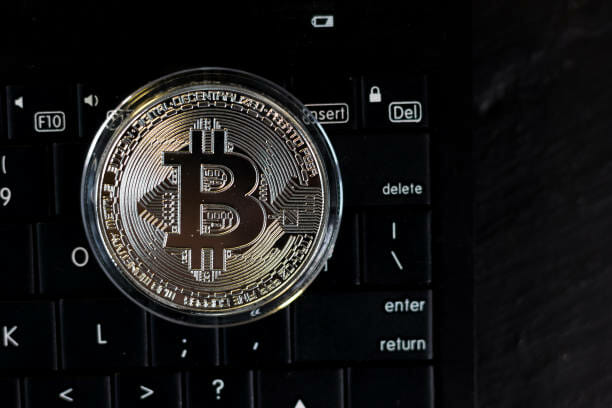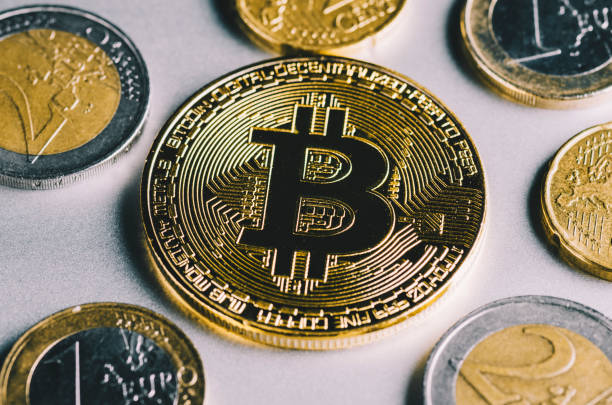Cryptocurrencies are becoming increasingly popular, especially to invest in alternative assets. But with high volatility and a lack of regulation, some skeptics are still critical of cryptocurrencies. One of these critics is Elizabeth Warren, who recently said that investing in Bitcoin through your 401(k) is a bad bet.
In this article, we’ll examine why some people still believe in crypto despite the risks.
Overview of Crypto
Cryptocurrency is a digital form of currency on a decentralized, encrypted, digital ledger known as blockchain. It is not issued or regulated by any government or financial institution.
Cryptocurrencies are generated and held in digital wallets and can be used to purchase items from retailers who accept them as payment. Unlike traditional money, cryptocurrencies are not backed by tangible assets and have no intrinsic value beyond the market’s perception of them.
Despite its lack of regulation, many still believe cryptocurrency can provide unique opportunities for investment and commerce. Crypto enthusiasts believe it could offer more secure financial transactions with fewer intermediaries while still providing access to digital currencies and other assets over the internet. There is also some potential for more transparency in financial systems as cryptocurrency transactions are recorded on the decentralized ledger.
However, cryptocurrencies have their share of risks and potential pitfalls that should be considered before investing or using crypto for payments. For example, crypto markets are highly volatile and prices do not always reflect real-world values due to speculation about future performance or general demand for the asset class. Additionally, since cryptocurrencies operate outside government oversight, there is a risk that they could be misused for illegal activity such as money laundering or fraud. Furthermore, fraud can occur if investors lose control of their private keys, which allow access to digital wallets where cryptocurrency is held.
Crypto Critics
Crypto has been rising recently, with some people using it as an investment opportunity. However, despite its potential, there are many critics of the crypto market, with people like Elizabeth Warren warning against investing in it.
This section will examine the arguments of the crypto critics and explore why some people still believe in crypto despite the risks.
Elizabeth Warren’s views on Crypto
The Democratic Senator from Massachusetts and presidential candidate Elizabeth Warren, while supportive of technological innovation, takes a critical stance towards the volatility and risks associated with cryptocurrencies. In an August 2018 statement to the Senate Banking Committee, she argued that Cryptocurrency can be easily used for money laundering and terrorist activities with an almost non-existent regulatory framework. She further expresses concern over the lack of consumer protection when mining or investing in crypto.
Warren believes that existing financial institutions are more capable of meeting the needs of consumers when it comes to modern securities trading and investing – securely, efficiently, and cost effectively – without the added risk of speculative cryptocurrency involvement. She agrees with other crypto critics who say that traditional methods remain a better option for large-scale investment portfolios or retirement savings accounts.
Warren does not dispute America’s need for further development in fintech (financial technology) regulation but believes that success lies in caution and regulation rather than volatile risks associated with cryptocurrency speculation.

Reasons Crypto is Still Appealing
Despite the numerous risks and bad press that crypto has had, many people still believe in it. Many different groups of people are still riding the crypto wave, from tech enthusiasts to day traders.
So why do they still believe in crypto despite the risks? Let’s discuss the different reasons why crypto is still appealing to many people.
Cryptocurrency as a Store of Value
Cryptocurrencies, like Bitcoin, are viewed as a reliable store of value by its supporters. Cryptocurrency proponents point to their decentralized nature and the lack of government intervention when setting their value. Since cryptocurrency prices are set by market forces that include buyers and sellers, crypto is seen as a superior store of value compared to more traditional financial instruments like stocks or bonds, which government fiscal policies can heavily influence.
The perceived stability of some cryptocurrencies also sets them apart from other asset classes such as fiat currencies. Fiat currencies regularly suffer from hyperinflation, losing much of its value over time because the underlying economic systems that sustain it deteriorate or fail due to conflict; cryptocurrency holders argue that the decentralized nature of digital assets makes them immune to these issues. For example, Bitcoin’s finite supply makes it immune to the debasing effects of quantitative easing (QE) actions taken by governments and central banks worldwide.
Crypto proponents have continually asserted that digital assets have real-world use cases beyond trading activities which enable them to act as stores of value despite volatile swings in prices they experience in the market. Furthermore, they claim that blockchain technology, especially with smart contracts embedded in them, provides an immutable record system whose transactions remain secure and safe from manipulation. This can be beneficial for payments and recording valuable data points by businesses across many industries such as healthcare, insurance, banking and more; this will enable one to trustlessly prove ownership rights and securely store identity data beyond what is offered today with traditional databases and networks.

Cryptocurrency as a Hedge against Inflation
One of the major benefits of cryptocurrency for many investors is its ability to act as a hedge against inflation. Cryptocurrency has the potential to grow in value over time, unlike other traditional investments or commodities, which could become devalued due to inflation. As a result, the value of cryptocurrencies is less subject to the whims of governments and their decisions on monetary policy.
Cryptocurrency can also protect against currency devaluation because you own digital coins that are not directly affected by changes in foreign currencies or other economic forces beyond your control. So, for example, if you hold BTC and its price increases in your home country while falling elsewhere in the world, this would still represent an increase in overall net worth due to the gains in your market.
This could be particularly appealing for those living in nations prone to rampant inflation (ex: Venezuela), where fiat currencies tend to become worthless quickly. By holding crypto, investors can secure their savings and avert financial disaster brought on by hyperinflation. In addition, it provides a means of preserving capital while protecting against geopolitical shocks that could otherwise lead to economic upheaval or currency meltdowns.
Cryptocurrency as a Medium of Exchange
Cryptocurrency’s greatest appeal is its use as a medium of exchange. Unlike fiat currency, cryptocurrencies are digital and decentralized. This means they are not issued or monitored by any one party or institution, allowing people who don’t trust governments or banks with their money to transact without these intermediaries. Cryptocurrency users do not need to rely upon centralized institutions for sending and receiving money, and their transactions are processed quickly and securely.
The cryptographic technology which underpins cryptocurrencies also allows users to develop programs that automatically execute transactions based on predetermined conditions. This is the basis for the “smart contracts” phenomenon – contracts that execute themselves when certain conditions are met and verified on the blockchain technology. For example, a contract could be programmed such that whenever two parties agree to exchange certain goods or services for cryptocurrency, the terms of the agreement will be automatically enforced once both parties meet their respective obligations. This could help encourage more efficient business operations since payments and transactions can be conducted without going through lengthy paperwork or an overly complex system with middlemen involved in the transaction process of conventional financial institutions.
Therefore, it becomes easier for people to transfer funds anywhere in the world without worrying about foreign exchange rates or long processing times, making cryptocurrency truly global. Moreover, as long as users keep their private keys secure and practice secure wallet storage methods, they will never have to worry about theft or hacking issues which often come along with regular banking services. Combined, it is no surprise that cryptocurrency still appeals to many despite its risks.
Crypto critic Elizabeth Warren thinks putting bitcoin in your 401(k) is a bad bet
Despite the risks associated with investing in crypto, many still believe in its potential to become a mainstream currency for the world. Crypto critic Elizabeth Warren particularly believes investing in crypto is a bad bet for a 401(k).
Let’s look at crypto’s risks and why some people are still willing to take the plunge.
Volatility of Crypto Prices
Crypto markets are incredibly volatile — prices can change in seconds. This makes it difficult for any trader or investor to ensure they are buying or selling a crypto asset while the price is at its peak. Moreover, the extreme volatility makes crypto assets susceptible to manipulation by large investors and “whales” who have significant amounts of capital available to manipulate prices. Finally, volatility also means it can be difficult for crypto holders to identify when economic conditions align for them to profit from their investment.
These drastic price swings can create great anxiety for investors who want to know whether their timing was correct. Additionally, certain topics — such as governmental regulatory uncertainty, hacks of exchanges and wallets, and discussion regarding upcoming Bitcoin forks — can cause similar panics meaning there is potential huge losses during such times. Furthermore, since most major exchanges limit the number of orders placed during high-volatility periods, many traders only have limited options when attempting to capitalize on market swings.

Lack of Regulation
One of the most notable risks associated with investing in cryptocurrencies is the lack of regulation. Cryptocurrencies operate using a decentralized system, meaning users are responsible for maintaining and securing their transactions, rather than a central authority such as a government or bank. Unfortunately, this means there is no legal protection, like fraud or theft, if something goes wrong.
Another issue with the lack of regulation is that cryptocurrency exchanges are not subject to the monitoring and oversight that traditional stocks and securities are under – thus, there’s no guarantee that trading will be fair or honest. Additionally, cryptocurrency regulations fluctuate quickly, making it hard for investors to stay informed and make educated decisions.
Finally, many people also worry about the amount of energy used by cryptocurrency miners who power the blockchain technology behind it all and other environmental concerns related to crypto. For example, about 80 percent of Bitcoin’s total energy consumption comes from miners in China alone.
Security Risks
Cryptocurrencies are relatively new and their security protocols are still in flux. As a result, the currencies themselves can be volatile. At the same time, the blockchain applications they power may suffer from “bugs” or security vulnerabilities that would be unfixable due to the nature of decentralized networks. In addition, the distributed ledgers that support most cryptocurrencies are not backed by a financial institution or other third party so you may find yourself without a safety net if something were to go wrong.
Crypto exchanges can often be hacked, creating even more risk for those storing their cryptocurrencies on these platforms. Additionally, reports of scams can cost investors significant amounts of money if they do not conduct their due diligence when using cryptocurrency services or making investments. For example, there have been incidents where potential investors have been targeted by scammers offering get-rich-quick schemes related to cryptocurrency investments.
Finally, given the decentralized nature of many crypto assets and lack of regulation, it is easier for fraudsters to anonymously commit criminal activities on networks such as money laundering and drug transactions before disappearing into the dark web and beyond. In addition, though cryptocurrencies like Bitcoin claim anonymity, all transactions are stored publicly in transparent blockchain ledgers thus making it possible for governments worldwide to monitor and trace payments made with cryptocurrency more easily than fiat currencies.
Conclusion
The cryptocurrency market can be risky, and these risks are often why people hesitate to invest. Despite this, the long-term potential of cryptocurrencies could still outweigh the risk for those who believe in its true value proposition. One of the most attractive features of cryptocurrencies is that it offers users more financial freedom, privacy, and stability. Moreover, due to its decentralized nature, crypto might be less affected by economic recessions than traditional currencies.
As more infrastructure is built around cryptocurrency and regulations become clearer, many investors may feel more comfortable embracing cryptocurrency investments over traditional ones. The key is understanding each user’s risk tolerance and realistic expectations about potential returns over time. As such, before investing in cryptocurrencies, users should research them thoroughly, consult with professionals whenever possible, and practice caution during investment decisions. Crypto remains a volatile market with several important risks but has real potential for those willing to accept the associated challenges that come with it.
